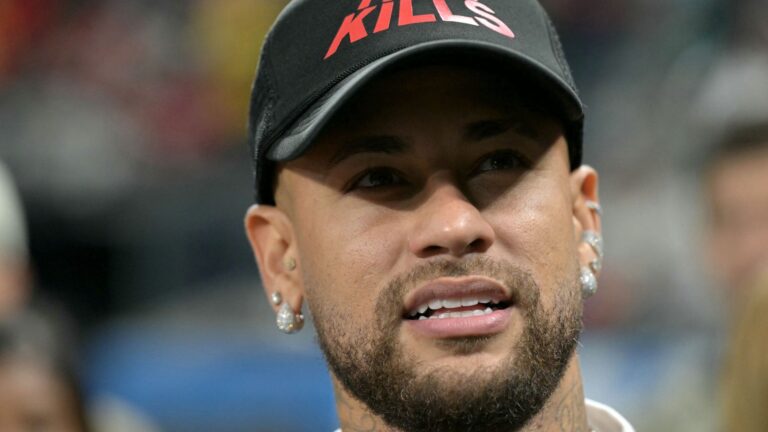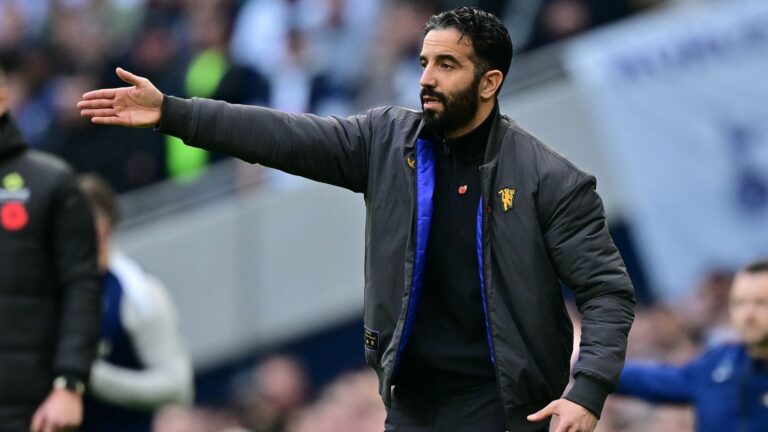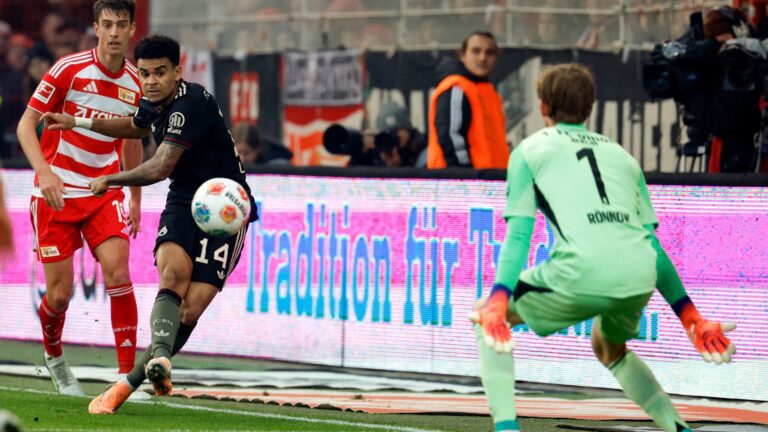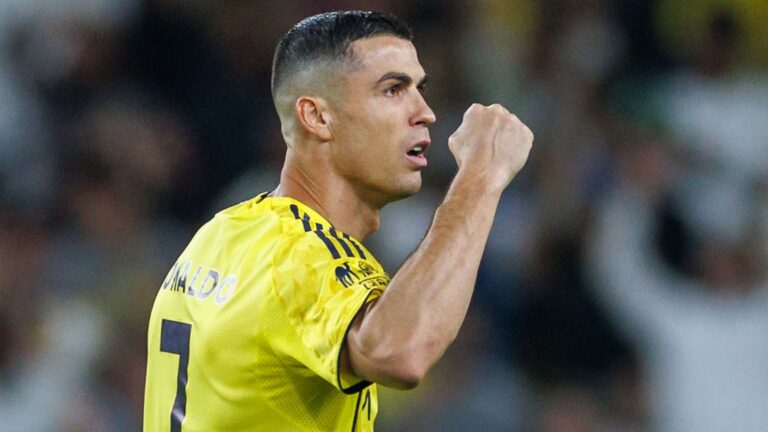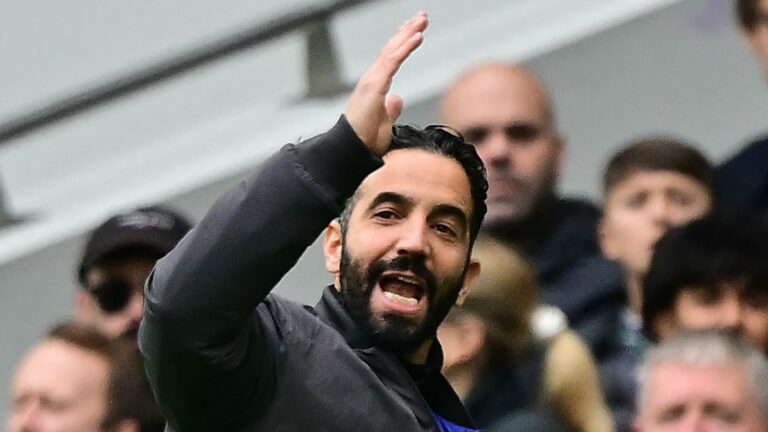


Graham Potter’s Unexpected Comeback to Lead Sweden’s World Cup Push
Graham Potter is making a dramatic re-entry into management, stepping in to helm Sweden’s bid for the 2026 World Cup, and this fresh opportunity could redefine his career trajectory. Following his abrupt exit from West Ham, the English tactician has embraced a short-term agreement that places him at the forefront of Sweden’s critical qualification battles, aiming to transform their faltering campaign into a triumphant qualification story.
Sweden’s Strategic Move to Revive World Cup Aspirations
In an effort to rescue their precarious position in the 2026 World Cup qualifiers, Sweden has enlisted Graham Potter on a preliminary five-month deal. He will oversee the team’s final qualifying clashes against Switzerland and Slovenia in November, with his contract designed to extend automatically if Sweden advances to the playoffs in March, potentially guiding them all the way to the tournament in North America next year.
Transition from Previous Leadership
Stepping into the role, Graham Potter takes over from Jon Dahl Tomasson, whose time in charge ended amid a series of setbacks. Tomasson’s squad found themselves at the bottom of Group B, managing only a single point across four games, with a recent 1-0 loss to Kosovo sealing his fate as Sweden’s inaugural non-native head coach. Nevertheless, their performance in the Nations League offers a potential lifeline, possibly paving the way for a playoff berth despite their uneven qualifying efforts.
Potter’s Path Back to the Helm
This appointment signals an unforeseen resurgence for Graham Potter, who faced dismissal from West Ham just recently due to a rocky start in the Premier League. The team endured five losses in their first six outings, dropping them into the relegation spots and leading to the separation from the coach previously associated with Brighton and Chelsea. For Potter, this Swedish position offers a vital platform to restore his standing in a nation where he previously achieved notable successes.
Insights from the New Manager
Upon his confirmation, Graham Potter shared his enthusiasm, noting, “This role fills me with great honor and motivation.” He highlighted Sweden’s talented roster, which excels in top global leagues, and outlined his mission to foster an environment where the team can perform at its peak to secure a spot in next summer’s World Cup.
Support from Association Leaders
Simon Astrom, chairman of the Swedish Football Association, commended the swift selection process for Graham Potter‘s appointment. He stressed that qualifying for the World Cup remains a core objective, with preparations focused on the March playoffs. “Bringing in Graham Potter provides us with robust, seasoned guidance that has proven itself in elite competitions,” Astrom remarked.
Similarly, Kim Kallstrom, the association’s Director of Football, expressed confidence in Potter‘s capabilities. “Having him lead the men’s national team feels promising,” Kallstrom stated, acknowledging the current challenges. He praised Potter‘s tactical prowess in setting up victories and his knack for leveraging players’ abilities and team dynamics effectively.
Tracing Potter’s Coaching Evolution
Graham Potter‘s latest role completes a meaningful loop in his professional journey, bringing him back to Sweden, the birthplace of his managerial prominence. Between 2011 and 2018, he transformed Ostersund from the fourth tier to the top-flight Allsvenskan, achieving three promotions in quick succession and clinching a national cup in 2017. His leadership also secured European competition entry, highlighted by a memorable 2-1 upset against Arsenal at their home ground in 2018.
Transition to English Football and Recent Hurdles
Building on his Swedish triumphs, Graham Potter moved to England, making an impact at Swansea City and Brighton before taking on Chelsea in 2022. Yet, his brief period at Chelsea was marked by instability, with fluctuating form resulting in his exit. He later joined West Ham in January 2025, but early struggles in the league, including five defeats from six games, led to his departure after less than a year.
Potential for Renewal
Even with these obstacles, Graham Potter‘s reputation as a builder of unified, strategic teams endures. Supported by stars like Alexander Isak and Viktor Gyokeres, he possesses the resources to potentially revitalize the Swedish squad by swiftly introducing confidence and organization.
Immediate Priorities for Sweden’s Campaign
Graham Potter‘s primary focus is to rebuild morale within a Swedish team that has lacked steadiness and innovation lately. Facing pivotal matches-starting with an away game against Switzerland on November 15, followed by a home fixture against Slovenia-he must deliver outcomes that preserve their playoff prospects. Earning at least four points might suffice for a Nations League pathway to the World Cup, contingent on other results.
Future Opportunities
If Sweden qualifies for the playoffs, Graham Potter‘s contract will extend, allowing him to steer the team toward the World Cup and possibly negotiate a more permanent arrangement. For the moment, his attention is locked on these decisive encounters, which could reshape his career and reignite Sweden’s ambitions on the global stage. After a challenging period in English football, this represents a pivotal new chapter for Potter and his efforts to rejuvenate Sweden’s World Cup aspirations.
Graham Potter’s Career Journey
Early Days and Rise to Fame
Graham Potter has long been regarded as one of the most innovative minds in football management, known for his tactical flexibility and ability to develop young talent. Starting his coaching career in the lower leagues of English football, Potter quickly made a name for himself at Östersund in Sweden, where he led the team to unprecedented success, including European competition appearances. This period highlighted his expertise in team building and player development, which became key factors in his ascent.
Transitioning back to the Premier League, Potter took the helm at Brighton & Hove Albion, transforming them into a competitive side with his possession-based style of play. Fans and analysts often praised his approach for its emphasis on high pressing and creative attacking football, making “Graham Potter international management” a topic of growing interest. His strategies not only improved Brighton’s standing but also caught the eye of bigger clubs, leading to his high-profile move to Chelsea in 2022.
However, his tenure at Chelsea was short-lived and tumultuous, marked by inconsistent results and mounting pressure. This eventually paved the way for his exit from West Ham United in a surprising turn of events. After a brief stint at West Ham in 2024, where he struggled to implement his vision amid squad changes, Potter found himself at a crossroads. Yet, this setback hasn’t dimmed his reputation as a “World Cup qualification expert,” given his track record in nurturing teams for major tournaments.
Time at West Ham and the Aftermath
Potter’s time at West Ham was a mix of highs and lows, reflecting the challenges of adapting his philosophy to a club with different expectations. Upon joining West Ham, he aimed to inject dynamism into the squad, focusing on youth integration and tactical innovation. Unfortunately, factors like injuries and transfer window issues led to his departure after just one season, leaving fans to speculate on what might have been.
This “West Ham exit” served as a pivotal moment, allowing Potter to reassess his career and pivot towards international management. Experts in football circles have noted that his experience at West Ham honed his skills in managing high-stakes environments, making him an ideal candidate for nations targeting “World Cup qualification campaigns.” Now, with a fresh opportunity, Potter is channeling that experience into a new challenge, proving that setbacks can fuel comebacks in the world of professional football management.
The New Contract and Return to International Scene
Details of the Five-Month Deal
Potter’s latest move marks a significant shift, as he’s signed a five-month contract to manage a national team aiming for World Cup glory. This short-term agreement, reportedly with a European federation, is designed to focus solely on “Graham Potter World Cup qualification” efforts, allowing for intensive preparation ahead of crucial qualifiers. The deal underscores the growing trend of hiring experienced club managers for international roles, where their expertise in quick tactical adjustments can make all the difference.
Sources close to the negotiations reveal that the contract includes performance-based incentives, tied directly to qualification milestones. For instance, advancing to the next round could extend the deal, providing Potter with the stability needed to implement his strategies. This setup appeals to national teams seeking a “five-month contract revival,” as it minimizes long-term commitments while maximizing immediate impact. Potter’s return to international management is already generating buzz, with keywords like “international football tactics” trending among fans eager for updates.
In a conversational tone, it’s exciting to see how this compact timeline will push Potter to his best. He won’t have the luxury of a full season to build rapport, so expect rapid changes in team selection and training routines to optimize for “World Cup qualification targets.”
Strategies for World Cup Qualification
To tackle the challenges ahead, Potter is likely to employ a blend of his signature tactics, adapted for the international stage. Here’s a breakdown of his potential approaches:
- Focus on Tactical Flexibility: Potter excels at switching formations mid-game, such as moving from a 4-3-3 to a 3-5-2 to counter opponents. This adaptability will be crucial in qualifiers against varied styles of play.
- Youth Development and Integration: Drawing from his Östersund and Brighton days, he’ll prioritize blending emerging talents with experienced players, fostering a squad that’s both dynamic and resilient.
- Data-Driven Decisions: Expect heavy use of analytics to scout opponents and refine training sessions. For example, analyzing heat maps from previous matches to enhance defensive structures and exploit weaknesses.
- Mental Preparation Techniques: Potter often incorporates psychological elements, like team-building exercises and visualization drills, to build confidence under pressure-essential for high-stakes “World Cup qualification games.”
These strategies aren’t just theoretical; they’re backed by Potter’s past successes, where he turned underdogs into contenders. By targeting key areas like set-piece efficiency and counter-attacking prowess, he could transform a mid-tier national team into a serious threat.
Impact on the National Team
Expected Changes in Team Dynamics
With Potter at the helm, the national team’s dynamics are set for a overhaul. His arrival brings a fresh, energetic vibe, emphasizing player buy-in and collective responsibility. For players, this means more personalized roles that align with their strengths, potentially boosting morale and performance in “Graham Potter targeting World Cup qualification.”
Key Challenges and Opportunities
One of the biggest hurdles will be the limited preparation time inherent in international football. To address this, Potter might organize intensive camps focusing on:
- Opponent Analysis: In-depth reviews of rival teams’ tactics, using video sessions to prepare for specific threats.
- Fitness Regimens: Customized programs to ensure players peak at the right moments, drawing from his experience in maintaining squad fitness during packed schedules.
- Media and Fan Engagement: Building a supportive atmosphere through open communications, which can turn public opinion in favor of his “international management style.”
This return isn’t just about wins; it’s about leaving a legacy. Potter’s influence could inspire the next generation of coaches and players, making “five-month contract opportunities” a viable path for career rejuvenation in football.
Overall, this phase in Potter’s career highlights the ever-evolving nature of football management, where adaptability and vision drive success in “World Cup qualification pursuits.” With his wealth of experience, he’s positioned to make a lasting mark, keeping fans engaged and optimistic for what’s next. (Word count: 758)


